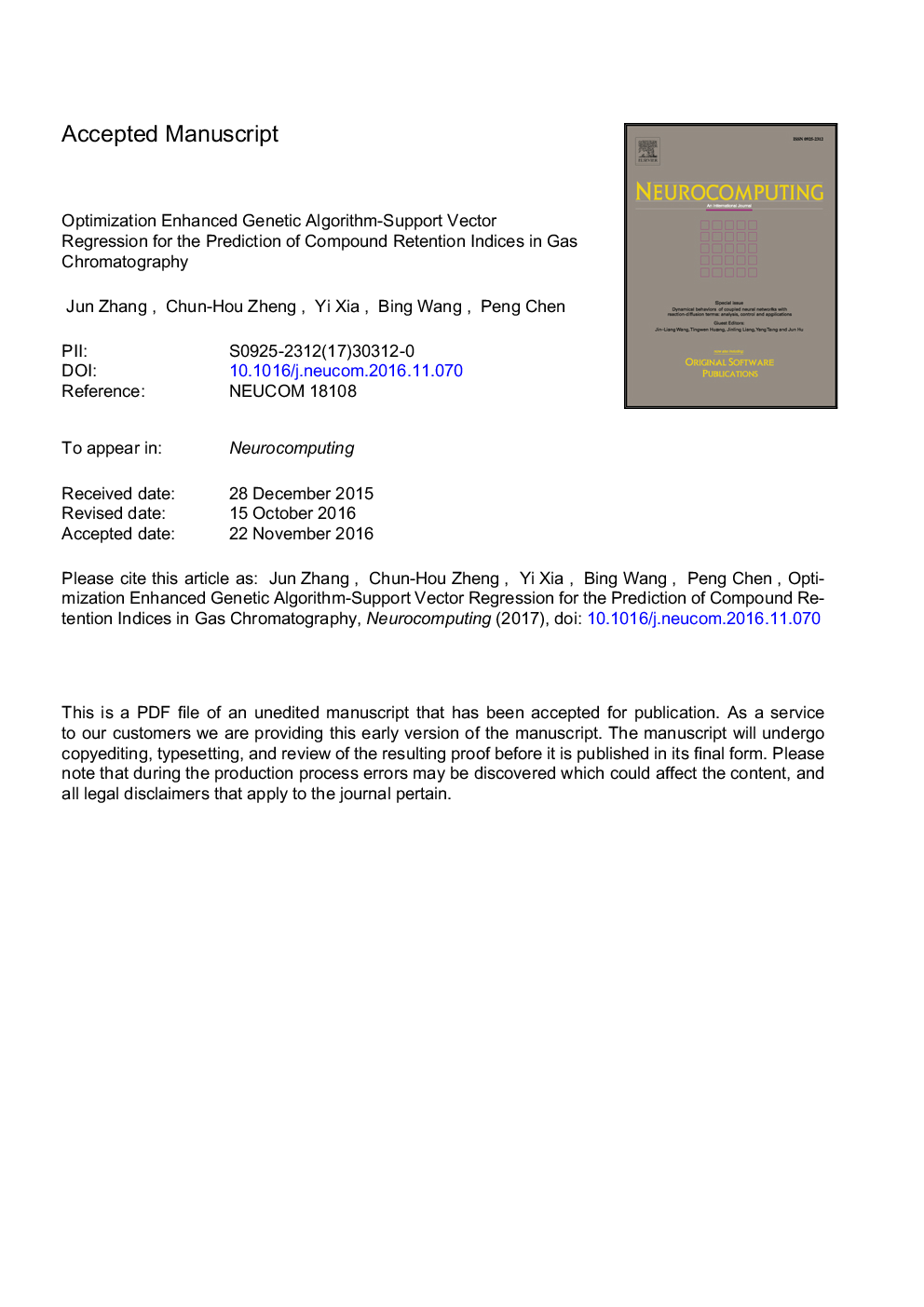ترجمه فارسی عنوان مقاله
بهینه سازی رگرسیون بردار الگوریتم ژنتیکی برای پیش بینی شاخص های نگهداری ترکیب در کروماتوگرافی گاز افزایش یافته است
عنوان انگلیسی
Optimization enhanced genetic algorithm-support vector regression for the prediction of compound retention indices in gas chromatography
| کد مقاله | سال انتشار | تعداد صفحات مقاله انگلیسی |
|---|---|---|
| 110425 | 2017 | 16 صفحه PDF |
منبع

Publisher : Elsevier - Science Direct (الزویر - ساینس دایرکت)
Journal : Neurocomputing, Volume 240, 31 May 2017, Pages 183-190
ترجمه کلمات کلیدی
رگرسیون بردار پشتیبانی، ساختار کمی ساختار رابطه نگهداری، پیش بینی شاخص های نگهداری، کروماتوگرافی گازی،
کلمات کلیدی انگلیسی
Support vector regression; Quantitative structureâretention relationship; Retention indices prediction; Gas chromatography;

